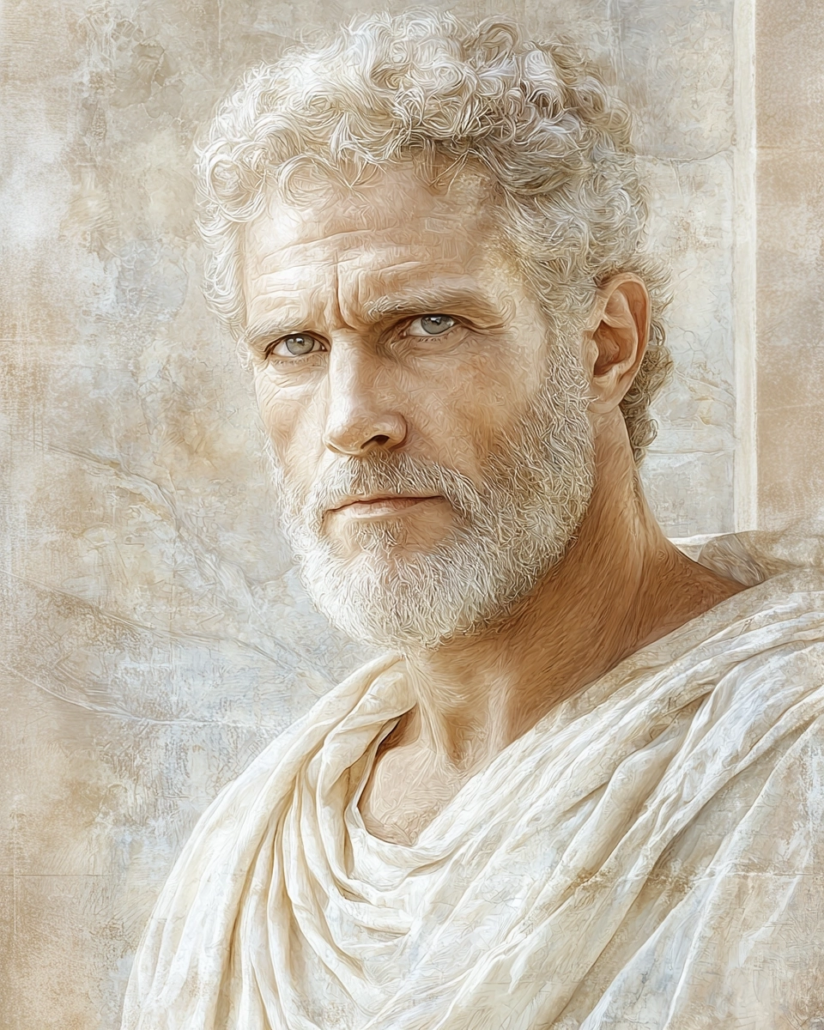Cato the Younger: Unyielding Principles and Stoic Strength 🌟
A Pillar of Stoic Virtue
Cato the Younger (born 95 BCE – died 46 BCE) was a renowned Roman statesman and philosopher, celebrated for his unwavering adherence to Stoic principles. He exemplified virtues like courage, justice, and self-discipline, becoming a symbol of moral integrity in both politics and philosophy.
Historical Context and Influence
Cato was born in Rome into a prominent family and quickly gained a reputation for his steadfast commitment to justice and the ideals of the Roman Republic. As a senator, he opposed the growing power of Julius Caesar, standing firmly against corruption and authoritarian rule. His life and death embodied the Stoic ideal of living and dying with virtue. Deepen: Wikipedia
Why are his teachings and views so valuable?
The unwavering principles of Cato serve as a timeless guide for those seeking resilience and moral clarity. His Stoic philosophy emphasizes the power of reason over emotion and the importance of living in harmony with one’s values, offering profound lessons for today’s challenges. Read more: Stoicism in Modern Life
Key Teachings
Cato’s philosophy centered on self-discipline, virtue, and unwavering commitment to justice. He believed that true freedom could only be achieved through mastery of the self and living a life guided by reason. These principles made him a revered figure among his contemporaries and in the Stoic tradition.
Legacy
- “Cato’s life inspired later Stoics, including Seneca and Epictetus, who saw him as an exemplar of virtue.”
- “His steadfast opposition to tyranny left a lasting legacy on political philosophy.”
- “Through his actions and ideas, Cato demonstrated the power of living in alignment with one’s values, even in the face of adversity.”
Stoic cardinal virtues that he embodied
- “Wisdom – Cato was guided by rational thought in every decision.”
- “Justice – He tirelessly fought for the rights and freedoms of others.”
- “Courage – Cato faced overwhelming opposition with bravery and resolve.”
- “Temperance – He lived a life of moderation and self-restraint.”
Quotes attributed to him
- “Live as if you were to die tomorrow, but learn as if you were to live forever.”
- “It is better to suffer wrong than to do it.”
- “A man should never compromise his principles, no matter the cost.”


